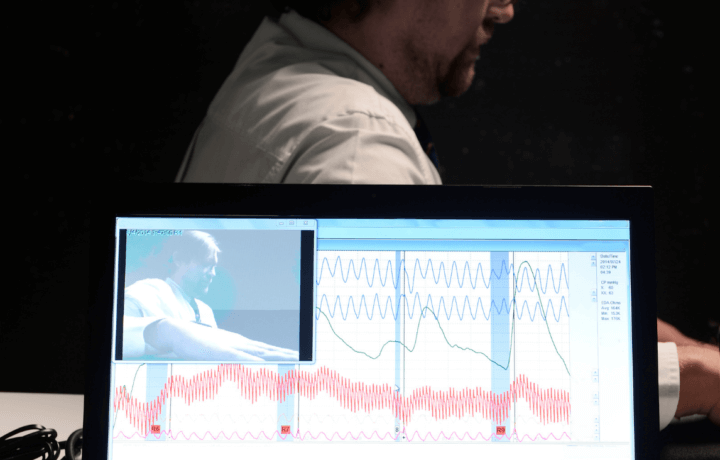Many security clearance applicants are concerned about one of the tools used for high level security positions: the polygraph. These are tools used in the security clearance process to assess an individual’s truthfulness and reliability, particularly for positions requiring access to sensitive information. It’s primarily used for higher-level clearances, like TS/SCI and in specific federal law enforcement roles. The polygraph aims to detect deception by measuring physiological responses to questions, helping to identify potential security risks.
Dominique writes on the ClearanceJobsBlog:
What questions are asked during NSA polygraph screening I’m asking because I’m interested in their undergrad intern program, I also would like to know if me having a drug charge PWID (possession with intent to deliver) of a small amount from 2016 that I will be completely honest about will it hinder me from getting in the program.
Or James1219 asks if volunteering stuff to the polygrapher ever a good idea?
I know a common adage is “be truthfully honest” to the polygrapher, but I see many people post here who had bad experiences disclosing information to the polygrapher before/during it begun, and results in an unfavorable outcome. Isn’t that the whole purpose of the polygraph? To get more clarified information for better or worse?
And lastly, has anyone been told they “failed” their 2nd polygraph, but didn’t?
Took first poly, not stressful, was told to come back for a second poly to focus on one question area. There was no interrogation. Months later, I took second poly, I thought I had done well but the examiner left the room, came back after 10 minutes, said that quality control deemed that I “failed” and interrogated me intensely. They also said that because it was the 2nd time on the topic of interest I wouldn’t be reinvited back for a 3rd but did ask me later if I would be open to coming back if needed (but they didn’t anticipate it). Could this have been a bluff? They explicitly used the word “failed”. Is a post poly interrogation always an indicator of failure? Also, do all polys go through adjudication?
Myth vs. Reality: What You Need to Know
If you’re heading into a polygraph soon, take a deep breath, skip the internet “hacks,” and focus on telling the truth. The rest is just part of the process.
Myth 1: Polygraphs Are 100% Accurate and Always Determine Truth
Reality: Polygraphs are not “lie detectors.” They measure physiological responses such as heart rate, blood pressure, and sweat gland activity—signals that may indicate stress or anxiety. Trained examiners interpret these results, but several factors can influence the outcome: False positives and false negatives happen and anxiety, medical conditions, or medications can affect readings. Polygraphs are investigative tools, not final proof of truthfulness and in the clearance process, a failed or inconclusive test often just means further review or a retest.
Myth 2: Failing a Polygraph Automatically Disqualifies You from Clearance
Reality: A polygraph is only one piece of the broader adjudication puzzle. Even if you “fail” a test, you may still move forward in the process. The full review includes background checks, interviews, SF-86 form review, and corroborating evidence from multiple sources. Many applicants are given another chance to take the polygraph or explain their answers before any decision is made.
Myth 3: You Can Beat the Polygraph with Tricks or Techniques
Reality: The internet is full of “tips” for beating the polygraph. Examiners are well aware of these tactics, and attempting them can raise red flags and trigger suspicion, leading to invalidated results. Trying to game the polygraph can backfire badly—often worse than just answering honestly.
Polygraphs can be stressful, but they’re not the final word in your clearance journey. The most important thing you can bring into the exam is honesty—both with the examiner and yourself. Understanding how polygraphs work, and knowing that a single test doesn’t determine your fate, can go a long way toward reducing the anxiety that comes with this infamous step in the process.



